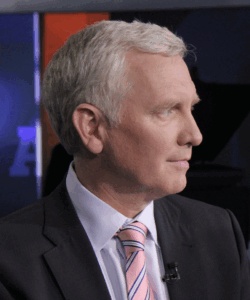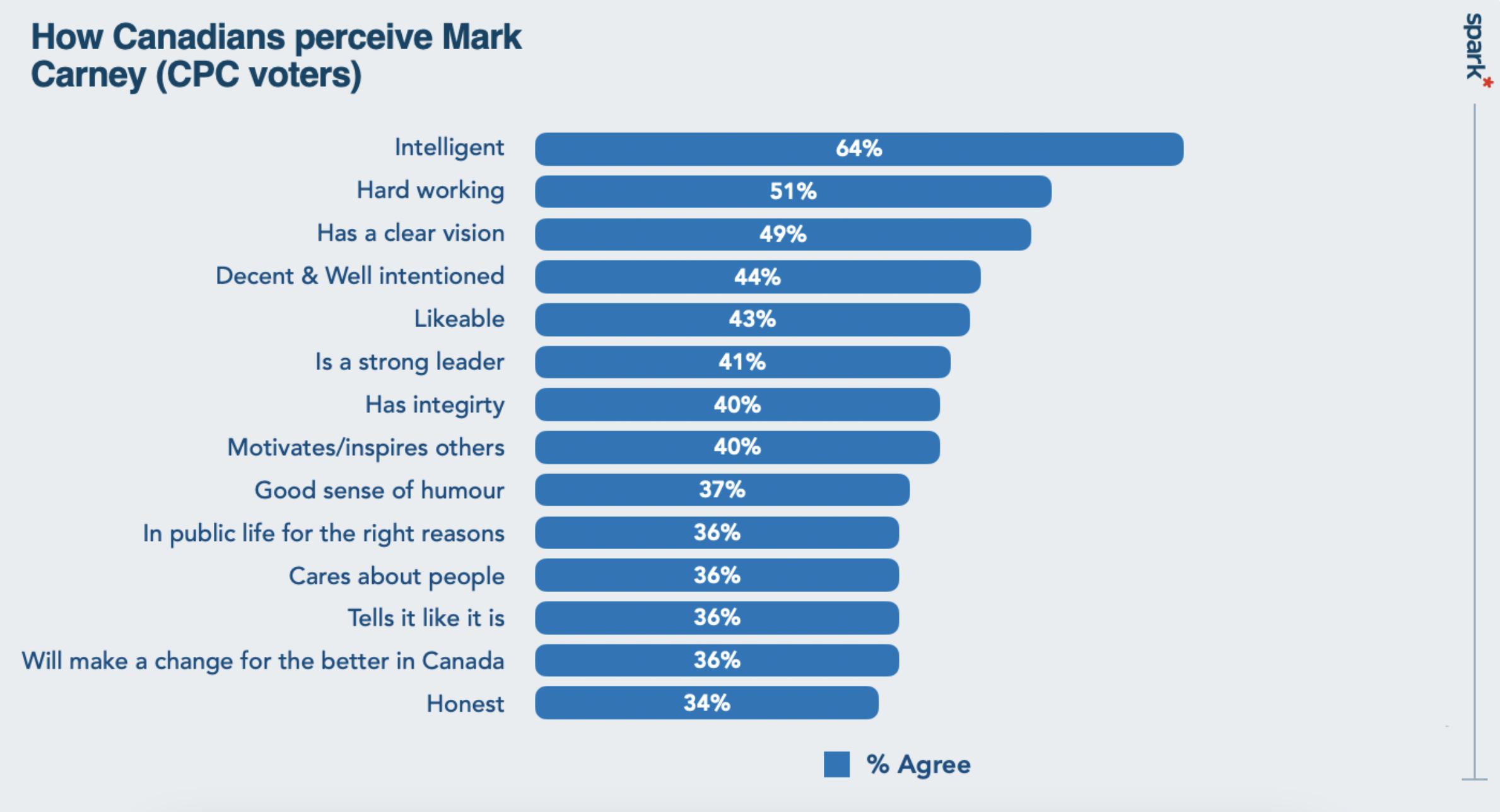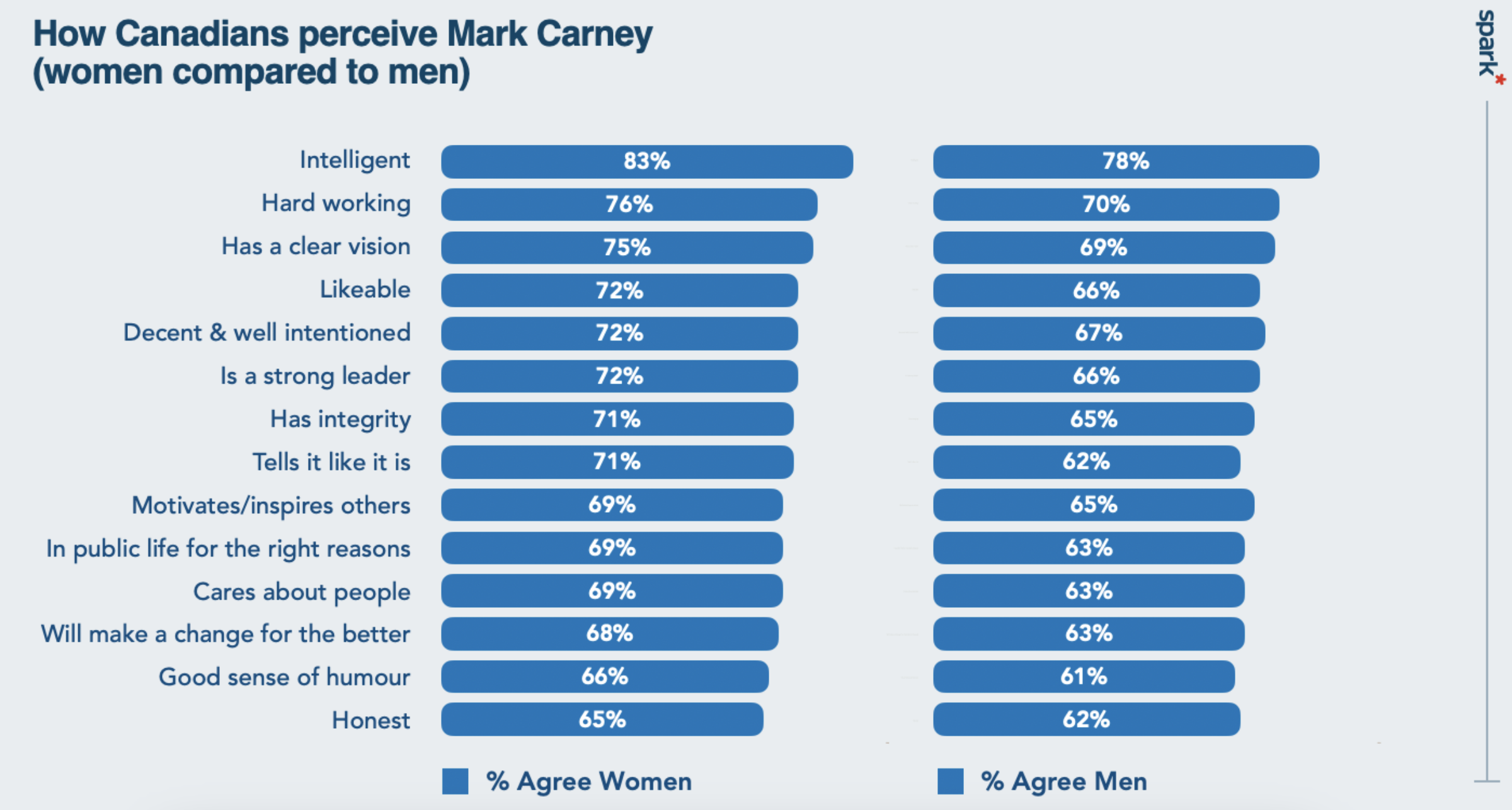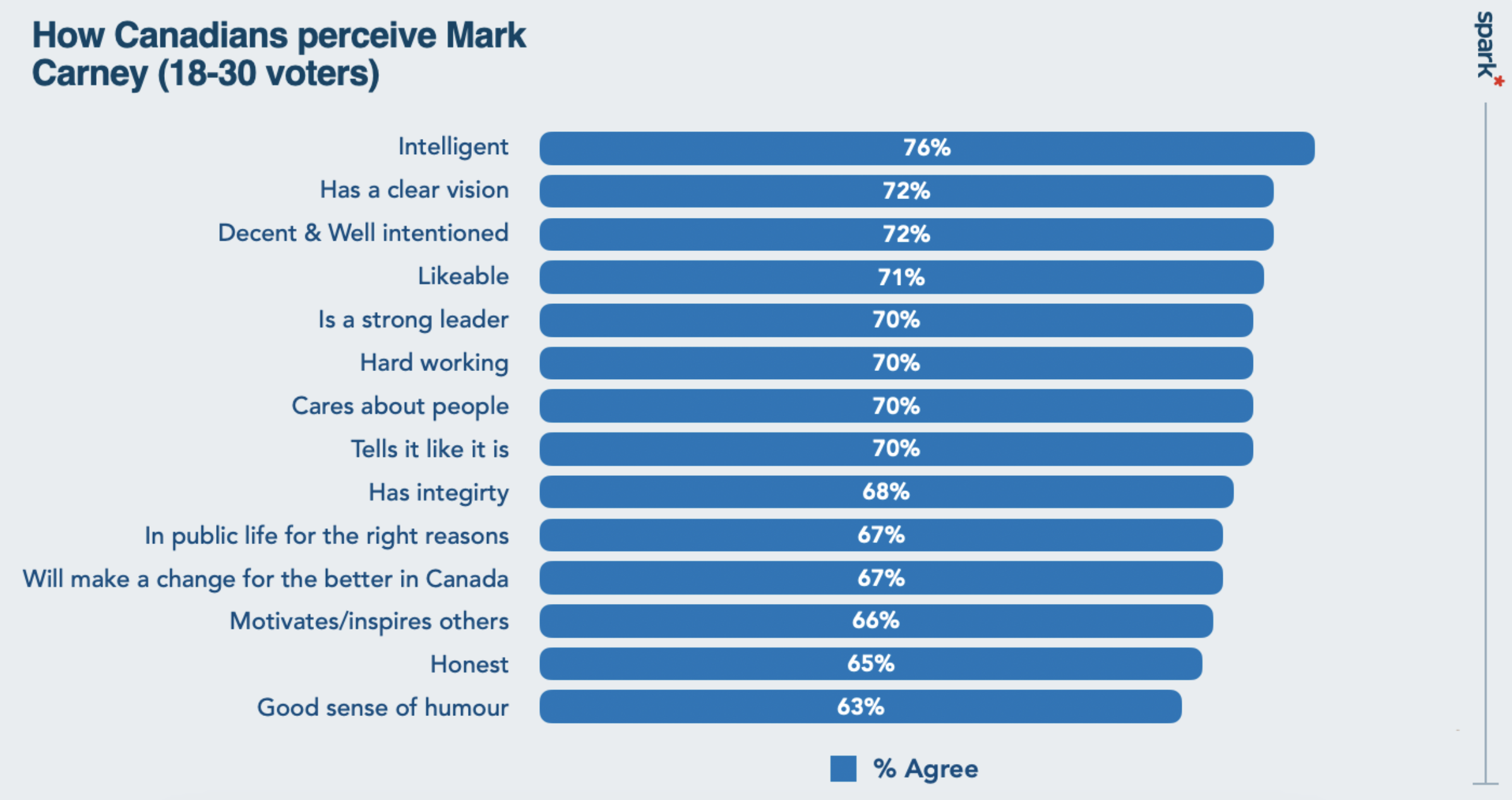Spark Insights Polling: Mark Carney and the Likeability Factor

By Bruce Anderson
June 1, 2025
How many times have you heard the curse “A plague on all their houses” — the Shakespeare line from Romeo and Juliet, adapted to describe how voters feel towards politicians?
Media coverage of politics tends to exaggerate how disliked politicians actually are, and I’d make a case that the cynicism and clickbaiting that pervade a lot of media coverage today actually create more negativity about politicians instead of simply documenting or reflecting it. But that’s an argument for another day.
Last year, I ran into a lot of people who wanted me to know that voters would never warm to someone like Mark Carney. Too cerebral, too dry, too hesitant, too successful — I heard all of these over and over.
My own sense of Mr. Carney was very different, but I was interested in whether we had truly arrived at a point where our distaste for politics meant that voters wouldn’t elect someone with a good intellect, a serious work ethic and a track record of success. Did we really only want people who looked and sounded just like the sort of politicians we seemed tired of?
Carney has only been in politics for 136 days. People are only starting to get to know him. How’s it going?
Two thirds to 80% of those polled in our latest Spark Insights survey have a lot of good things to say about the new Prime Minister. At the top of the list, 80% see him as intelligent. 70% or more say he is decent and well-intentioned, likeable, has a clear vision and is hard-working. Two thirds or more say he cares about people, is in politics for the right reasons, is a strong leader, has integrity and will make a change for the better in Canada.

Considering that he got 43% of the popular vote, this is a lot of people who didn’t vote Liberal saying they like what they see in Carney. Let’s take a look at what Conservative voters have to say. Almost half say he’s likeable. Half say he’s got a clear vision and is hard-working. 64% say he’s intelligent. These numbers aren’t exactly normal. Conservative partisans are usually a lot more categorically negative towards Liberal leaders.

In the run-up to the election, the Liberals had lost a lot of ground among men, and younger people, compared to the past. Today, men are about 4-6 points lower than women in seeing positive qualities in Carney, a very modest gap that suggests men feel more drawn to him, even as women continue to see him in a highly positive light.

For many observers, this was going to be an election where younger people chose a different path than older voters, and where Carney was supposedly at a disadvantage relative to the younger, populist Poilievre. So far, most voters under 30, regardless of whether they voted Liberal, like Carney (70%). (Among those 60 and older, the number is higher, but only by 4 points.)

Different people will have their own takes about these findings. The big takeaways for me are these.
People like likeable people. Sounds obvious, I know, but let’s remember that a lot of politicians spend time trying to be obnoxious in the belief that the game is about making the other one fellow look worse.
Appealing leaders are judged more on the basis of the attitude they convey about the work they are doing — voters generally won’t dig into the substance of policy choices, but they are astute as hell when it comes to knowing what a clear vision, empathy, and honesty looks and sounds like.
Finally, these are not normal times, and Carney is not a Central Casting politician. His background and skill set are a good match when people think that we really need an intelligent approach, a clear vision, and a lot of energy and hard work behind that agenda.
As he’s only been PM for fewer than 100 days, these numbers are not a judgment on his record, more like a quick first take. But they tell a story of a population that is willing to suspend cynicism, and — perhaps tentatively — imagine that the right leader can make a difference for the better.
The great political philosopher Groucho Marx said, “Politics is the art of looking for trouble, finding it everywhere, diagnosing it incorrectly, and applying the wrong remedies.” Maybe he’ll be proven wrong this time.
Bruce Anderson has been a pollster, strategy and communications advisor for more than 40 years. He is a frequent commentator on Canadian politics and public policy including on The Bridge podcasts. He is a founding Partner and Chief Strategy Officer of Spark Advocacy. He was an active, public supporter of Mark Carney during the Liberal leadership campaign and federal election.
